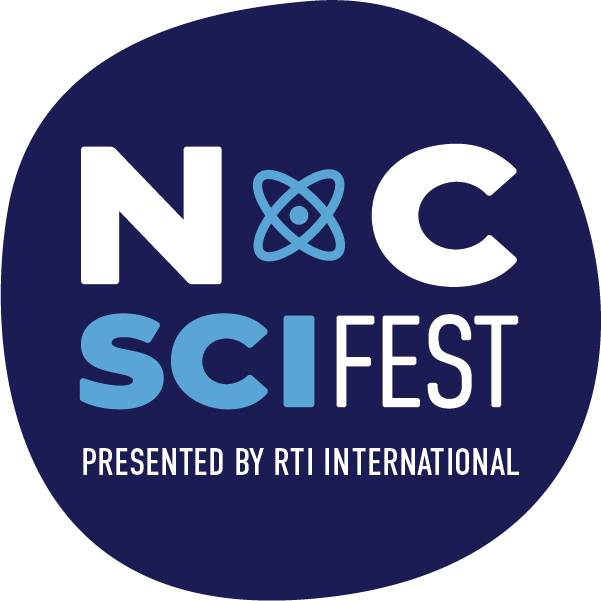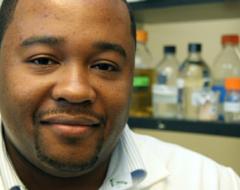
Research: I study breast cancer cells in order to understand what makes them grow and how we can stop them from growing.
Favorite thing to do as a kid: Participate in talent shows (sing, dance, act)
From: Marshville, NC
"Becoming involved in STEM was the answer to my curiosity as a kid. I did not know what I wanted to do as a career until my biology professor in college, Dr. John Browne, recognized my affinity towards biology and science and he suggested that I join the MARC program and conduct breast cancer research in his lab, and as they say the rest is history. I love to share my story about my journey into science, and I hope that I am able to inspire others to appreciate the importance of science and how it helps to make our lives and our planet better."
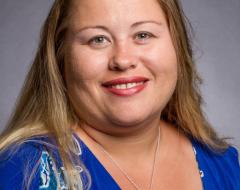
Research: I work in salt marshes and oyster habitats to see how man-made structures affect the animals and plants
Fun fact: I once saw baby sea turtles hatch and run to the ocean.
From: North Carolina
"I enjoy teaching people about science. I love to play a science myth-busting game in class because we are all told things as kids that seem to be fact. My favorite part is how a person's face lights up when they learn that frog urine doesn't cause warts, blood isn't blue, and daddy-longs legs is not a spider. This is why science communication is important to me...to clarify what we think we know into true knowledge."

Research: Phototherapeutics, or, medicine that can be activated by light.
Favorite pastime: Hiking
Social media: @cmarvin67
From: Scranton, PA
"Strong and respectful science communication will be pivotal in driving the future of science in the world. I hope I can spark genuine curiosity and encourage everyone to be a scientist by asking questions, exploring new ideas, and engaging with the world."
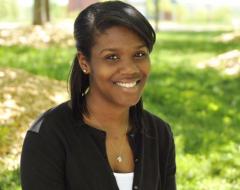
Research: The use of nanotechnology as "delivery trucks" for cancer research!
Favorite food: Deep dish pizza
From: Chicago, IL
"When I was younger, I was not very interested in math or science. However, starting at 13 years old I attended a summer science camp in Philadelphia, which truly sparked my interest in research and medicine. I continued attending this camp throughout high school. I began working in research labs at 15 years old and have loved research ever since!"
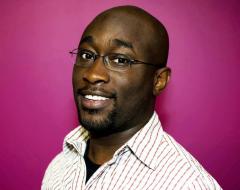
Research: Creating an implant that monitors blood sugar levels in patients with diabetes.
Favorite pastime: Rollerblading or being a comedian
From: Lanham, MD
"We scientists often forget that the work we do can change the course of the world, and that there are so many different ways to get those ideas across - from a run-of-the-mill presentation to a comic strip."
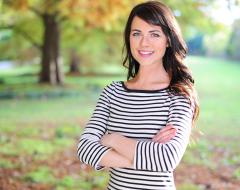
Research: How bacteria helps plant roots grow
Favorite food: Ice cream. Or tacos. Ice cream tacos?
From: Ankeny, Iowa
"I grew up surrounded by people who encouraged me to ask questions about the world around me. My parents and teachers were essential in shaping my natural curiosity into a love of the scientific method for answering my own questions. I love helping others find their own excitement for inquiry."
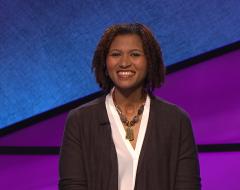
Work: I collaborate with colleagues to promote waste reduction and composting
Fun fact: I was a contestant on "Jeopardy!"
From: Charlotte, NC
"I've been interested in environmental problems since I was twelve, but it took me a long time to find my professional niche. My parents supported my academic endeavors, but I couldn't find role models for female scientists in my family. I was exposed to environmental education in graduate school, and gradually realized that the field excited me in a way that all of my laboratory and outdoor research experiences had not. My career aspirations continue to evolve; becoming a parent has broadened my focus from "saving the environment" to cultivating a love for nature in my own children."
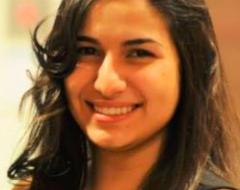
Research: Identifying a cross-correlation between two bio-signals using pain intensity on healthy college students
Favorite pastime: Cooking
From: Aguadilla, Puerto Rico
"I was born in Aguadilla, Puerto Rico. I have had the opportunity to be surrounded by the STEM fields all of life. I knew from a young age I wanted to be in the sciences and even started my own science club in the 2nd grade. Science communication is important to me because as scientists and engineers we dedicate our lives to research for the sake of advancing human health thus it is important to share our work with others. It is also important to foster young minds so that they can become the new generation of scientists, engineers, and doctors."
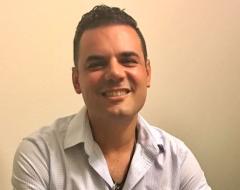
Research: We work at the nano scale which is 10 billion times smaller than a meter or one millionth times smaller than a millimeter.
Favorite pastime: Dancing tango
From: Lebanon
Mr. Azzi is the STEM outreach manager at the Joint School of Nanoscience and Nanoengineering reach out to K-12, speaker about nano technology at conferences, manages and organizes the Nano Manufacturing conference every year since 2013.
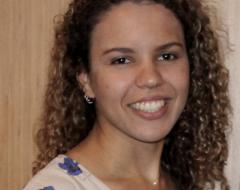
Research: I stick acoustic and satellite trackers on sharks and map where they go to determine habitat preferences and home ranges
Fun fact: I was branded into a Maasai tribe in Northern Tanzania
From: Norman, Oklahoma
"I have been very lucky to have really great educators throughout my life that encouraged all of my interests. STEM has allowed me to always explore more by asking "why?". Some of the answers I have received by asking this question have often stumped me, and that is why I think that science communication is extremely important. This is especially true when it comes to creating an overall better understanding for the general public of many scientific fields."

Research: Finding new treatment options for prostate cancer
Fun fact: I lived in three different continents
Social: Google Scholar, LinkedIn
From: Tehran, Iran
"After finishing my medical school and providing direct clinical service to patients, I moved to a research field to be directly involved in finding answer to my scientific questions. Sometimes I miss my interaction with patients and being directly involved in delivering treatments but I really enjoy my job although it is very competitive. By participating in IMPACT program, I forced my self to simplify my research when explaining it to other, That made the communication much more easier and not boring."
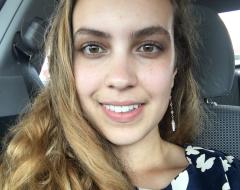
Research: I edit the DNA of specific cells to make organisms less susceptible to disease
Fun fact: I attended culinary school before starting graduate school
From: Oakland, CA
Jasmine Edelstein earned a baccalaureate in chemical engineering at Princeton University, where she researched the formulation of nanoparticle therapeutics in the Prud'homme lab. She is currently pursuing a doctorate in biomedical engineering with a focus on gene editing strategies for cellular reprogramming. Her distinctions include NSF Graduate Research Fellow, Tau Beta Pi Inductee, ad Morehead Science Ambassador.
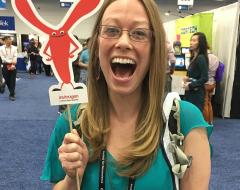
Research: How memories can affect the immune system.
Favorite pastime: Playing video games & hiking
From: Charlotte, NC
"Without effective communication of new scientific knowledge, society's progress will lag far behind the progress of scientific discovery. Plus, science is incredibly inspiring and we all deserve to have wonder and hope in our lives."
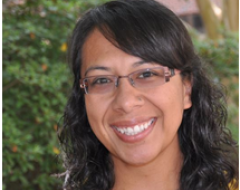
Research: How mental health affects women during their pregnancy
Fun fact: I speak Spanish and German
From: Seattle, WA
"I am originally from Washington State and completed my undergraduate and masters degree in public health at the University of Washington in Seattle. I have been involved in research since I was a middle school student working on science fair projects. Conducting research is exciting because it allows you to continue to ask questions about what ever topic interests you and learning about science means that you get an understanding about how the world works."
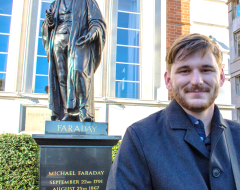
Research: Harvesting sunlight as fuel
Favorite Food: Sugar
Social media: LinkedIn
From: Lancaster, CA
"I am an NSF Graduate Research Fellow in the Gerald Meyer research group at UNC-Chapel Hill. I have developed collaborations both nationally and internationally, visiting a few of the sites personally. I also develop outreach lectures and activities. STEM outreach is important not only to the development of our next generation of scientists, but is is key for our societal advancement."
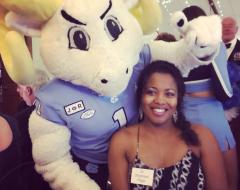
Research: I look specifically for changes in a cell's metabolism and how those changes are controlled.
Favorite food: My mother's sweet potatoe pie
Social media: Founder of #BLACKandSTEM
From: NC
"STEM is my way of connecting to my heritage as an African American. The innovation and brilliance that was obtained by a people who did not have access to education at all, let alone in STEM. Science communication is important because it is an avenue to increase the representation of who can be a scientist; we can show kids what is possible whether as a career or as an interest to pursue. SciComm is a means to engage with people who are not scientists so that scientists are listening to the world around them and so that non-scientists can understand more about the work that scientists do and its value."
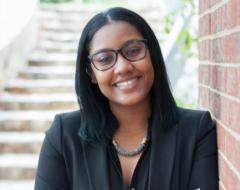
Research: How cells in our body use signals to drive their movement
Fun fact: I lived on a tiny island in the Caribbean
From: Brooklyn, NY
"STEM is doing what you love and using that to make an impact in the world. Being in a STEM field hasn't only allowed me to think outside the box but it has also allowed me to be able to communicate with others effectively. Half of my job involves physically working in the lab but the other half is centered around engaging with others who are or aren't part of the scientific community. Both aspects are equally rewarding! So again, what does STEM mean to me? STEM is a community; it's a way of thinking; it's hope!"
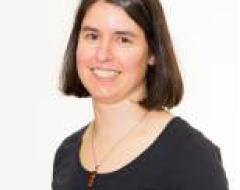
Research: How changes in the environment influence animals, and the benefits of maintaining a diversity of species.
Fun fact: I am the first one in my family to go to college.
From: Hamilton, OH
"I think sharing science with the public is critical to the future of the planet. We can make science accessible by showing people that science is all about being curious and making new discoveries. Not everyone will become a scientist, but we can help everyone appreciate the value of science."
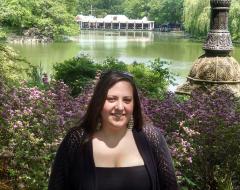
Work: I teach students about how to study and understand the behavior of both human and nonhuman animals.
Favorite thing to do as a kid: Anything involving animals.
From: Michigan
Rachel Morrison is an Assistant Professor in the Psychology Department at the University of North Carolina at Pembroke. She received her Ph.D. in Psychology with a concentration in Biopsychology from the Graduate Center of the City University of New York. Rachel’s research interests include animal behavior and cognition, as well as, animal welfare and human-animal relationships. She has conducted research with several animals, such as primates and dolphins, in diverse locations and contexts including: field research, lab studies, and studies of animals housed in zoological and aquarium settings.
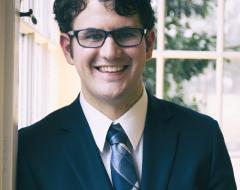
Research: Changing chemical reactions with salt
Fun fact: I have a 20+ lb keychain collection
From: Greensboro, NC
"Growing up I loved science. I would mix together random ingredients in "experiments", look at bugs under magnifying glasses, and build circuits. I firmly believe science is essential to our world whether you've spent years in science, or just know a little from school and your own observations. My goal as a science communicator is to both demonstrate the importance of science as well as my love for it to anyone I meet!"
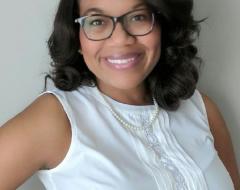
Research: Centering social justice in science education
Fun fact: I presented my work on culturally responsive science education at ESERA in Cappadocia, Turkey
Social media: LinkedIn
From: Salley, South Carolina
Brittany’s research interests have developed over the past years through her experiences teaching science in urban classrooms, work with undergraduate students in science laboratories, and work with K-12 and pre-service teachers. As a science teacher-scholar, Brittany is very passionate about better understanding and critically problematizing how science classrooms can be more equitable, effective, and meaningful spaces for learning.
Brittany received her Ph.D. in Teaching and Learning/Science Education from the University of South Carolina in 2015.
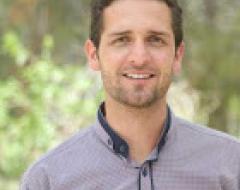
Research: Working on molecular dynamic simulation to describe the dynamics of biomaterials at nano scale.
Favorite thing to do when you were a kid: Riding motorcycles
Favorite food: Pizza
"I am originally from Iran, a little town near the big ancient monument, Persepolise. Then I migrated to the capital to work and then at 2016 I decided to go back to school and doing my favorite hobby, doing research."
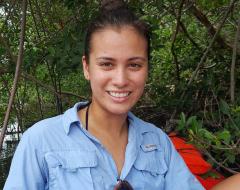
Research: How marine phytoplankton (microscopic algae) assemble and influence their environment.
Favorite food: Anything with coconut.
From: Fremont, CA
"I grew up in Northern California and first became fascinated with marine life while venturing along the tidal pools of Monterey Bay. I didn’t always think I was going to become a marine scientist and I even had moments in high school when I was convinced that science wasn’t for me. But luckily, I had a couple of teachers that encouraged me to pursue my enthusiasm for marine biology and make it my profession. For this reason, I'm driven to do my best to give children confidence in STEM and let them know that they can do it too!"
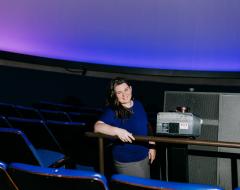
Work: I design and coordinate educational and entertaining programming for both public and school audiences in addition to other duties related to the management of a non-profit educational facility.
Favorite pastime: Art, Origami, Comic Books, Audio Books
From: Wilmington, NC
Social: Instagram
"I have always loved science, but have also been proficient in the arts. For much of my childhood, it was assumed I would be an artist of some sort. As an adult, after working a time at our state's Department of Health, I realized I wanted to be in the sciences and learned that I could combine my art skills with my work to engage the public. After enrolling in a science major I learned about science education research and discovered the perfect place I could combine my passions harmoniously"
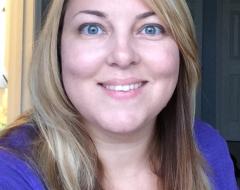
Research: Plant ecology with emphasis on plant interactions with air pollution, sustainable use of military lands, and using digital geographic data for decision making.
Fun fact: I once took pictures hanging out of a blackhawk helicopter by a harness.
From: Fayetteville, NC
"STEM holds importance to me because it is a way for us to understand the world around us and how to make the best, most sustainable use of our resources with the smallest impact we can. Science and math knowledge when paired technology and engineering gives us the greatest opportunity for sustainability. Science education and communication takes these ideas out of the lab and field and minds of scientists to help people understand what is happening or why certain decisions are made. And SCIENCE IS SO MUCH FUN!!!!!"

Research: I study the way we can produce a better vaccine to combat HIV infection.
Fun fact: I used to be a TV show writer!
From: Miami, Florida
"I grew up in Miami Florida and instantly had an attraction to the inquisitive nature that science provides when discovering the wildlife in my hometown. I was not exposed to the true scientific method, however, until I entered college. I think it is vitally important that children, from a young age, get exposed to experiences that teach them how vast, diverse, and fascinating the world of science can be. Being able to relay and present the information in an easy way is something I hope to learn and be able to share with the IMPACTS program."
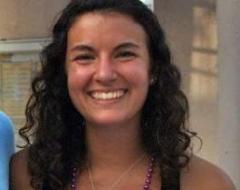
Research: Discovering new and exciting ways to keep fishers happy while protecting the beautiful coral reefs everyone knows and loves.
Favorite pastime: It's a tie between SCUBA diving and taking Zumba dance classes
From: Narragansett, RI
"I am a PhD student in Ecology at UNC-Chapel Hill. Prior to coming to Chapel Hill in 2015, I spent several years working in marine conservation and education after receiving my B.A. in biology from Connecticut College in 2013. I grew up in the small beach town of Narragansett, Rhode Island, where my passion for the ocean began at a young age. I seek to bridge the gap between the scientific community, policymakers and the public on issues of marine conservation, using education and outreach as the foundation to inspire increased environmental stewardship."
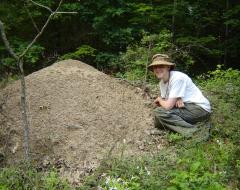
Work: I teach college students about bugs, parasites, and how to be better caretakers of the environment.
Fun fact: I'm a hobby beekeeper and also keep bees on campus.
From: Ohio
"Science communication is important to me because it allows me to let others know about important issues that are out there pertaining to sustainability and biodiversity. It also allows me to share my passion and help people feel more comfortable about things that they might be scared of like bees and bugs."
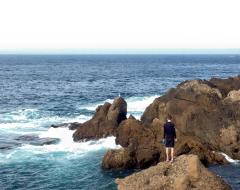
Research: The impacts of climate change and human activity on coral reefs.
Fun fact: I have a twin brother.
Social media: @jbaumann3
From: Columbus, Ohio
"I am a scientist with a passion for science communication. Research is only effective at making cultural change when it is properly communicated. Why make discoveries if you aren't going to tell people about them? I believe education is part of my job and hope to inspire the next generation of scientists through my research and communication activities."
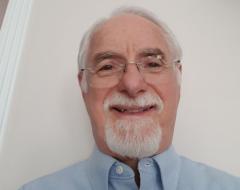
Research: Applications of robotics, artificial intelligence, automation as applied to Systems Engineering
Favorite food: Sweet Potatoes
From: California
"I have spent my career as a practicing engineer and now want to give back to the community through educating young students about STEM and its importance to their future. It is critical today that we expand the young minds in this country to the value of engineering to our country and their careers. Engineering is an exciting career for our youth to consider; with limitless possibilities for fun and excitement throughout their lives. Engineering integrates cross STEM."
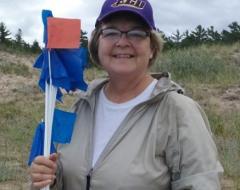
Research: 1) How to conserve and protect plants, and 2) how plants and their pollinators interact and what we can do to conserve and protect these interactions.
Fun fact: I began my training as a nurse.
From: Detroit, MI
"I loved school, but never saw myself as a scientist. My parents and teachers encouraged me in science and math. Mom never graduated from high school; Dad attended a few years of college. I attended college and changed my major a lot (nursing, art history, Spanish/French). Thanks to a teacher, I worked at a botanical garden and fell in love with plants and science. Too scared to get a job after graduation and again encouraged by others, I applied to graduate school and somehow ended up with a PhD. I love learning, math, science, plants, working hard. As a PhD scientist and University professor, I have the best life/job in the world."
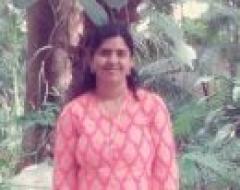
Research: Experiments on Surface Tension
Favorite pastime: Listening to music
From: India
"I’m Anitha Jayapalan, first year Ph.D student in the program of Nanoscience. We perform Nano-Bus program through the Joint School of Nanoscience and Nanoengineering. Through the Nano-Bus programme, we conduct science experiments and demonstrate the experiment to many schools."
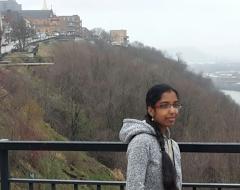
Research: Magnetic Properties experiments
Favorite thing to do when you were a kid: Watching sports
From: India
"STEM is an education curriculum that plays major role in students career to develop their science and technical skills. The science communication allows public to understand the scientific approaches thereby utilizing them for their beneficiary. Being a science student, I suggest people to understand the scientific methods, because science involves everywhere and in everything."
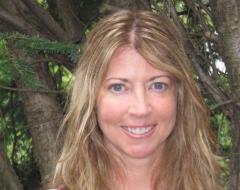
Research: Pre-historic earthquakes
Fun fact: My second choice for a career would be a character actor in Hollywood.
From: Charleston, WV
"I think it is important for Scientists to interact with society. We need to be engaged in public outreach, and help educate the populace regarding Climate Change. We also need to encourage more female and minority participation in STEM fields. Science should be accessible to everyone through reading, educational TV shows, news, and public outreach events. STEM fields need to be protected from those who denounce science. STEM is the future!"
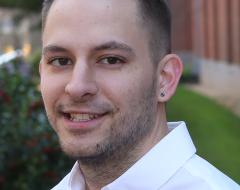
Research: Studying how cancer cells become resistant to drugs
Favorite pastime: Skiing with my friends.
From: Mebane, NC
"Often times there are miscommunications between the media, research, the government, etc., and I think that by showing people what we do and why it is important, we can help people with getting the correct facts and understanding what makes for a healthier lifestyle and cleaner earth. While my current research focuses on cancer, my new research will focus on the environment and ways that we can clean up the mess within the oceans and atmosphere."
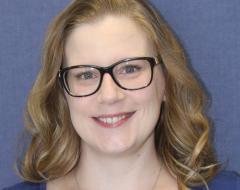
Research: Studying proteins in the saliva of Sjögren's patients
Fun fact: I am a genealogist!
From: Chillicothe, IL
Social: Twitter
"I have a really diverse background in the behavioral and natural sciences (psychology, neuroscience, chemistry, pharmacology, immunology) but surprisingly, I started undergrad as a music major! I like to share my vocational story because it helps students realize it's ok to be unsure or change your mind about school and career goals. You might take a non-traditional path or a few extra years, and make some (many) mistakes along the way, but that is ok! My favorite saying is "There is no syllabus for life!""
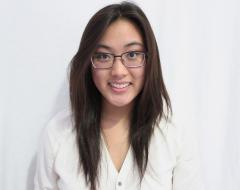
Research: The health of a human body
Fun fact: I have 19 screws on my spine
From: Philippines
"I believe that the STEM field continuously assists in the quick progression and technological advancement of our society. The STEM field was present even in the ancient times and is still growing until this day. I think that the STEM field provides a universal language that connects people from different parts of the world. I am part of this academic discipline because I was drawn to the sciences since I was young and the fact that it can establish communication between strangers astounds me."
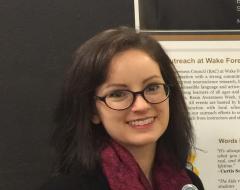
Research: What goes wrong in brain cells to cause Alzheimer's
Favorite pastime: Cooking
From: Winston-Salem, NC
"Anyone can be a scientist. There is so much we still don't know about how the world works, and it's a scientists job to figure it out one piece at a time. Imagine sitting in a lab late at night with a new research result you have been working on for months. In that moment, you are the only person in the whole world that knows that bit of information! It's an amazing job!"
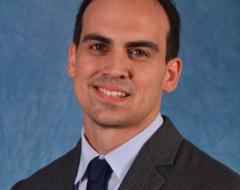
Research: Age-related macular degeneration (AMD), one of the leading causes of blindness in the elderly population
Favorite food: Singapore street noodles
From: Greenville, SC
"There is in fact a great deal of similarity between every STEM field. My personal scientific interests were rooted in neuroscience, but I learned to appreciate fundamental overlaps as I expanded my interests to pharmaceutical sciences. Future efforts to diversify scientific communication from a wide range of disciplines, while emphasizing their interrelatedness are key to fostering the next generation of STEM professionals no matter which career path they take."
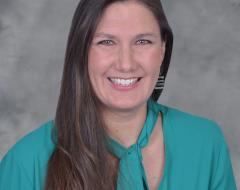
Research: Designing and testing activities that help students learn about science more effectively.
Favorite pastime: Crossfit
From: Pittsburgh, PA
"Science is super cool, and I love "geeking out" when I discover something interesting! I hope to pass on my passion and love of learning to everyone, regardless of whether they intend to be scientists or not. I live at home with my husband John, who is both a health care quality expert and family medicine doctor, our two cats, Ace and Orango, and our dog Ginger."
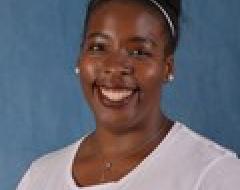
Research: The hearts natural pacemaker and how it functions
Fun fact: I was a member of the Philadelphia All-City Choir
From: Philadelphia, PA
"I am passionate about encouraging the youth to pursue STEM careers because there are so many questions about Biology that we do not know the answers to. I want them to understand that they could impact millions by the discoveries they could make in science. It is also important to me that I communicate my science successfully because there are many health epidemics around the world and the public needs to know that there are scientists aware of these issues and seek to make new discoveries that would positively influence health care."
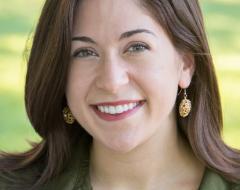
Research: Separation science, which involves separating a chemical mixture into its individual parts.
Favorite thing to do when you were a kid: Building LEGO sets
From: Fredericksburg, VA
"I'm a lifelong learner, and Google is my best friend because I search about everything. Working in a STEM field allows me to go one step beyond browsing Google by giving me the chance to explore new ideas with specialized equipment. I love communicating my science (or any science) in way that gets other people excited about the topic too. While attending graduate school I decided that I want a career, which involves using my scientific knowledge to advocate for science in the community. I'm interested in educating people about STEM topics because I want to help promote scientific literacy and inspire curiosity."
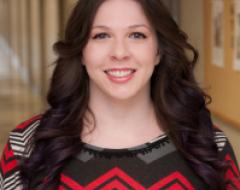
Research: I study how the brain learns different languages, specifically about what parts of the brain we use to listen to language.
Favorite pastime: Snowboarding
From: North Carolina
"As scientists, we need an effective and fun way to communicate with all age groups, especially students who are choosing future careers, about the importance of science. I hope that through this program I can learn to explain why science is fun and is for everyone."
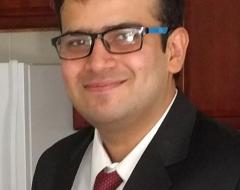
Research: Incorporating new technologies into the traditional manufacturing world in order to improve the productivity of manufacturers.
Favorite food: Pizza
From: Raleigh, NC
"STEM is a pathway to understand the world around us. It is not just equations and algorithms that you use to solve questions in an examination, but its a way of thinking. A scientifically literate population is essential for eradication of social evils and for a fully functional society. It is also the duty of scientists to share their findings not only in peer reviewed journals, but also with the population at large, in order to inculcate a spirit of scientific temper and curiosity in their minds and enable them to contribute to the effort of human progress."
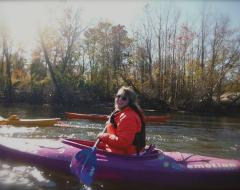
Research: How rust-forming bacteria impact their aquatic environments.
Favorite thing to do when you were a kid: Narrate my dog like he was on Animal Planet.
From: Lansing, NC
"Chequita Brooks is a first-generation college student from the Appalachian Mountains. She got her start in science growing mold for a class project and has since made a career out of growing our single-celled friends in large number. She now works to help others recognize the scientist in themselves by encouraging curiosity and wonder through programs such as IMPACTS and Nerd Nite."

Work: Determining the most up to date information in the science of biology and finding the best lab activities to use to teach this information to students.
Favorite thing to do when you were a kid: Horseback riding
From: Greensboro, NC
"I was born and raised in Greensboro, NC until I went to college at East Carolina University. I majored in environmental biology and eventually went on to get my Master of Science in Biology with emphasis on marine biology and fisheries. After graduate school, I worked an aquatic habitat biologist in Florida on Lake Okeechobee for four years. Then I began a career with NC Division of Marine Fisheries, where I worked in fisheries population management. After nine and a half years, I landed my current job as a biology instructor at College of the Albemarle."
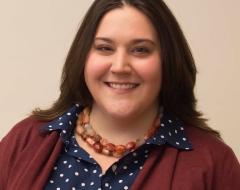
Research: Discovering new species of microorganisms using microscopes and DNA sequencing
Fun fact: I've been bitten by four of the five largest snake species!
From: New Orleans, LA
"Issues such as global climate change, habitat destruction, and biodiversity loss are complex and can only be solved through cooperation between scientists and the public. As a researcher, one of the most important parts of my job is explaining to non-scientists why my work--and the work of other scientists--is important and relevant to their everyday lives."
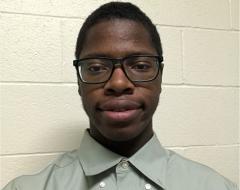
Research: Programs that can adapt to become more efficient at analyzing data
Favorite pastime: Meditation
From: Greensboro, NC
"I am a junior at Elizabeth City State University who has internship experience at Bloomington, Indiana. I have had a wide range of interests over the years from biology to business to chemistry, but I decided that computer science was what I desired for my Bachelor's degree. I decided to double major after seeing the interconnections that both mathematics and computer science had in the rest of STEM. I enjoy the science fiction, horror and thriller genres in cinema and literature."

Research: Interactions between microbes and plants.
Fun fact: I grew up on a farm.
From: Rowland, NC
"I want to expose K-12 to different areas of science and hope to spark an interest in the STEM fields. I want to see an increase of minority students going into STEM and especially in the research field."

Research: Predicting risk and resilience to developing symptoms of mental illness
Favorite pastime: Hiking the woods with my kids and dog
From: Nashville, TN
"Empowering everyone to question evidence and test ideas, as well as helping cultivate persistence and a passion for learning. Learning about how the brain changes physically every time we do anything helps me try to learn something new at least every day and try something completely new once a week. I completely fail most of the time, but always enjoy the experience!"
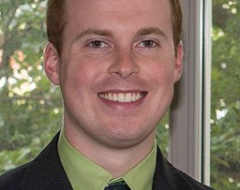
Research: The effects of stress and alcohol on the brain
Fun fact: I have an identical twin who is studying to get his Ph.D.
"I have always loved learning new and interesting things. Exploring STEM ideas is great because they are always moving forward, researchers constantly advancing the understanding of their field. Because of this continuous progression, the ability to communicate scientific ideas effectively is an important skill. I hope to cultivate the ability to share an enthusiasm for STEM in people of all ages."
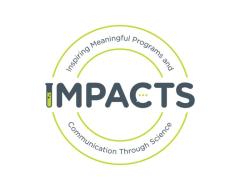
Reseach: Studying old pig bones that have been uncovered at historical places.
Fun Fact: I have hand-fed an alligator.
From: Polk County, North Carolina
"As a biologist, I love the living world around me, and am fascinated by plant and animal life every day. I want to share this fascination with others by educating them about the natural world. My goal is not to get everybody to go into a STEM field; my goal is to inspire people to become naturalists. A naturalist is a person who loves nature, who tries to learn as much as they can about their natural world whenever they can, and who wants to make sure future generations get the opportunity to be awed by nature one day too. Anyone can be a naturalist, all you need is a passion for an aspect of the natural world. Through science communication I hope to instill that passion in the public and encourage them to get outside and learn about the trees, insects, geology, birds, mushrooms, flowers, reptiles, and other flora and fauna that is present around them."

Reseach: The restoration of oyster and salt marsh habitats.
Fun Fact: When I was younger, I bowled competitively.
From: Boxford, Massachusetts
"Even though I studied Government in college, my recent "quarter-life" crisis and experience working in labs all over the country made it clear to me that I'd rather be designing studies and playing in mud than working in a cubicle. It's never too late to change your life plans - I am very happy to now be studying Biology at East Carolina."

Reseach: How and why bacteria or germs are not killed by things (medicines or disinfectants) that are meant to kill them.
Favorite Pastime: Being on a dance team
From: Detroit, Michigan
"Science communication to me is important because it humanizes scientists. It is important for the public to know that most scientists have the same concerns as the general public."
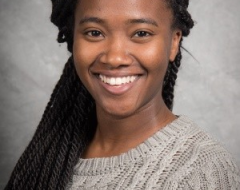
Reseach: How a history of drug use affects decision-making.
Fun Fact: My last name translated into my parents native language is "Snake Boy"
Social: Twitter, LinkedIn
From: Yonkers, NY
"Growing up, I loved solving puzzles, people watching, and science. Who knew that behavioral neuroscience would be the perfect intersection for me to continue doing what I love? Although I wish that I had been exposed to different avenues I could take to become a scientist at a younger age, I am very grateful for all the mentorship that I have gotten along the way. To me, STEM and science communication are important because science is something I feel should be accessible to everyone."
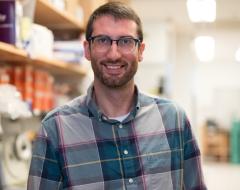
Reseach: How some of the most common mutations in our DNA result in some of the deadliest forms of cancer.
Fun Fact: I taught kindergarten and third grade before pursuing a career in cancer research.
From: Lawrence, Kansas
"Prior to starting my Ph.D. at UNC, I taught elementary school for 6 years. I initially wanted to pursue a career doing research in education, but I decided to merge my life-long love of science with my desire to conduct cutting-edge research. Having been in education, I have seen firsthand how important a solid foundation in STEM is. I think being able to communicate science in a variety of settings to diverse audiences is important and necessary in order to train the next generation of scientists and to inform others about the amazing research going on in our community and state."
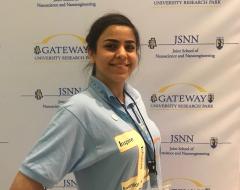
Reseach: Making antimicrobial material in form of fibers out of some type of polymer.
Fun Fact: It is not a long time since I learned simple human anatomy now I am working in biology area!
From: Iran
"I come from a material science background, in my education period I have learned how important it is to know how something works and why something happens. It can be helpful in all aspects of life, so STEM helps me to stimulate others to go for stems of what has interested them."
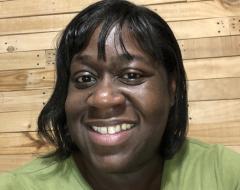
Reseach: How prescriptions are filled, especially oral medications.
Fun Fact: My last name is English and I love to write and edit EVERYTHING I read.
From: Durham
"From the time my Chemistry teacher in high school dropped a rose dipped in liquid nitrogen on the floor, I was hooked on Chemistry. I thought that I wanted to teach Chemistry but life has lead me on a different path. As long as I have the opportunity to mentor young scientists, especially minorities, I can use my scientific background in a number of ways in various fields. Chemistry gives me the flexibility to work doing something I enjoy as well as make a living."
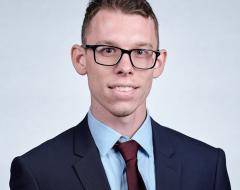
Reseach: Designing and making new materials that are used in polymer/plastic solar panels.
Fun Fact: Ran a full marathon (26.2 miles) when I was 16 years old!
Social: Twitter, LinkedIn, Google Scholar
From: St. John, Indiana
"Whenever I get the question, if you can’t be a scientist anymore, then what would be your new career/job, I always say that I would become a magician! The reason I love magic so much, is because it can create a sense of wonder and awe to the audience – it opens up new possibilities that you couldn’t even fathom seconds prior. With science communication, I love to start with demos that offer that same mystifying effect; however, unlike a magician, I always reveal my tricks – what science principle we just explored, why it is useful, etc."
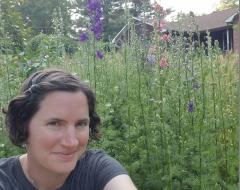
Reseach: If the amount of fertilizer used to grow plants in containers can be reduced if the amount of water used is reduced.
Fun Pastime: Playing with my plants!
Social: @anellesgardenin
From: Eastern NC
"When my family can't find me, they know I'm probably outside playing in my gardens. I'm totally convinced that plants can solve all of our problems, and I love teaching people new ways to experience plants."
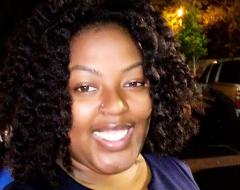
Reseach: Finding new treatment options for breast cancer.
Fun Fact: I really enjoy cooking and baking.
From: Whiteville, NC
"Born in a small town in NC I was always exploring and asking questions, many years later I'm still at it. STEM is something that we all do in our own special way even without realizing. Baking things is a science, building that gingerbread house during the holidays or playing Jenga is engineering, downloading apps is technology, and mentally calculating how much something costs is mathematics. Science communication is important because often times people think that things are too hard to do, when in reality most of us are unknowingly budding scientists. Its important that questions are created, explored, and answered whether alone or on a team, anyone can do it!"
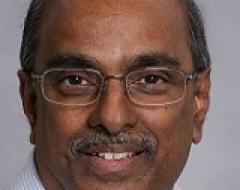
Reseach: Working on a protein present in your eyes to kill bacteria.
Favorite Pastime: Develop science kits
From: India
"Born and grew up in India. Always wanted to go abroad for higher education. Worked very hard towards my education. Education only brought me here. Enjoy my science here in this country."
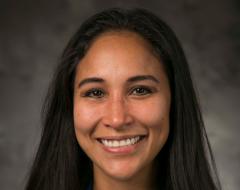
Reseach: I analyze transportation efficiencies and costs to create a bioenergy industry
Fun Fact: I visited 31 countries by 31 years of age.
Social Media: @DrDaniJones
From: Peru
Dr. Daniela Jones is a Research Assistant Professor in the Biological and Agricultural Engineering Department at North Carolina State University with a joint appointment with Idaho National Laboratory (INL). Building on Dr. Jones' operations research experience applied to the agricultural-based energy sector and her desire to promote environmentally friendly energy sources, she continues to develop mathematical models and solution algorithms to solve large-scale problems that arise in the areas of transportation, logistics, and renewable energy systems. She focuses on simulation and optimization of the entire supply chain (including, harvesting, pre-processing, storing, and delivering) for biomass as a feedstock for cost effective production of fuels, products, and power.

Reseach: Using proteins from Horseshoe crab blood to help diagnose sepsis faster.
Fun Fact: I have lived in six states in the last 14 years.
From: Simi Valley, CA
"I have always loved solving puzzles and science allows me to solve puzzles on a daily basis. I get to figure out how things work and how to problem solve, that is my favorite part about being a scientist. Science is so important to our world, but you may not realize how much it impacts your life on a daily basis."
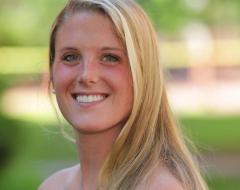
Reseach: I study the causes of disease.
Fun Fact: I have a twin sister.
Social Media: Instagram, LinkedIn, Website
From: Waxhaw, NC
"Growing up, I always knew that I wanted to do something in science whether it was going to medical school or going to get a PhD in chemistry. Throughout my undergraduate and now graduate career, the "why" question has driven me. I have always needed to know why something was the way it was, and this has helped me to learn, adapt, and challenge other points of view. Beyond knowing why things are a certain way, I want everyone to believe that STEM is for them and this is what makes me passionate about science communication."
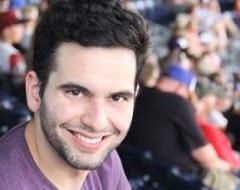
Reseach: I study the shape of a protein when it turns on in either health and disease.
Fun Fact: I am a yoga teacher.
From: Puerto Rico
"With my scientific background and passion for communication, I aim to inspire others just like I was inspired some time ago."
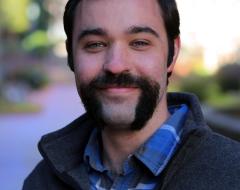
Reseach: I work on making polymers.
Fun Fact: I used to have a beard that was about a foot long.
Social Media: Twitter
From: Charleston, SC
"Science is so much more about creativity than people realize. To solve complex and difficult problems, it often requires thinking outside of the box and being creative."
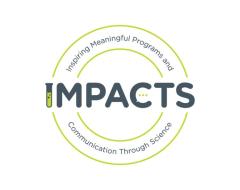
Reseach: Exploring different styles of teaching non-traditional college students and millennials.
Fun Fact: I am a living kidney donor.
From: Columbia, SC
"I have always been amazed by the human body. Biology was my study in undergraduate school. A strong desire in wanting to help people understand their body, it's functions and how to maintain good health lead me to study public health in graduate school. I worked in clinical research or over 15 years before joining the team in the STEM program at Fayetteville State. Science is important because everything we do involves science at some level or another."
